Table of Contents
Remembering Bob Marley (1945-1981), sheet music in the SMLPDF.
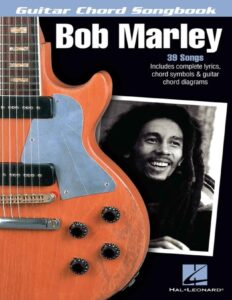
Best Sheet Music download from our Library.
Bob Marley (short biography)
Robert Nesta Marley (Jamaica, February 6, 1945 – Miami, United States, May 11, 1981), stage name Bob Marley, was a singer and composer considered the greatest exponent and disseminator of reggae, Jamaican music and rastafarian movement.
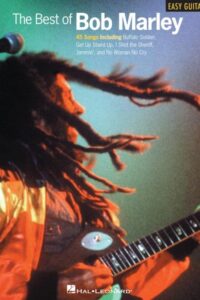
Son of a Jamaican of English descent, Norval Marley, who died when he was 9 years old, and an Afro-Jamaican, Cedella Booker, since he was little his mulatto skin tone was the result of the contempt of the black Jamaicans around him. In addition to this fact, his childhood was not easy due to the situation of poverty in which he lived with his mother, without water or electricity in their house. But as a result of the relationship that Cedella began with another man, Bunny Wailer, the family moves to the island’s capital, Kingston.
Please, subscribe to our Library.
If you are already a subscriber, please, check our NEW SCORES’ page every month for new sheet music. THANK YOU!
Established in their new home, the young Marley began to take an interest in music and composition. At that time it was common to listen to artists like Ray Charles or Fats Domino on the island’s radio stations, who became some of his role models. During this stage he combined his musical training with a Jamaican singer, Joe Higgs, with a job in a foundry company.
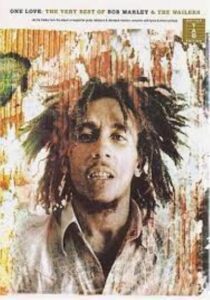
His first steps in music came from Leslie Kong, a music producer he met at an audition he attended and who, impressed by his talent, offered him to record some songs. But this was not enough to achieve success, so months later he formed the group Wailing Wailers with Bunny Wailer, Peter Tosh, a young musician he had met in his music classes, vocalist Junior Braithwaite and two backup singers.

After some time with the band, Marley moved to the United States with his mother and worked in a car factory. But his stay in the country lasted only a few months, since it was not the life he dreamed of. Returning to Kingston, he reunited his old group and renamed it The Wailers. In addition, he married Rita Anderson, a reggae singer whom he had met before moving to the United States.
At the time of his return, the Rastafari movement was more established than ever on the island, something that influenced Marley’s music. Again as a member of the group, at first they survived by writing songs for other artists such as Johnny Nash. His career would take off when he associated with musician Lee Perry, with whom they recorded some of the most significant songs in reggae. Such was the success that they got two important Jamaican musicians, the brothers Aston and Carlton Barret, interested in joining the band.
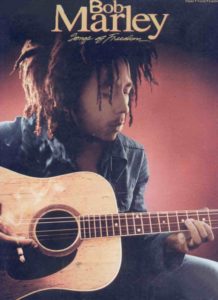
Although the group had achieved some success, they did not achieve international fame. It would be with the help of Johnny Nash, with whose record company they signed a contract, thanks to which their music would finally reach the United Kingdom. Even so, they did not achieve the expected projection, so Marley turned as a last resort to the record company Island Records, which he knew was interested in Jamaican music. With the label they released the album Catch a Fire (1973) full of songs with social themes that went unnoticed, but with which they began a tour around the country and the United States. At this stage Bunny Wailer left the band due to the lack of success, being replaced by Joe Higgs, the teacher who had trained both.
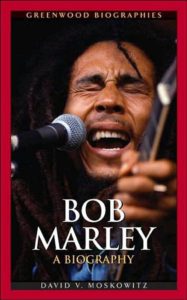
With Burnin’ (1973), the band’s second album, they would finally achieve international recognition by positioning some of their songs at the top of the music charts.
The following were years of intense work with the albums Rasta Revolution and Natty Dread (1974), the latter with songs that achieved great popularity such as No Woman No cry, Rastaman vibration (1976), Exodus (1977), Kaya and Babylon by Bus ( 1978), Survival (1979) and Uprising (1980), with which they achieved great international success, especially in the United Kingdom. All this together with the work of promoting the Rastafari movement and as a pacifist that Bob Marley carried out in parallel with the aim of stopping the street civil war unleashed between the two main political parties in the country.

On one occasion he and his wife were even attacked and shot. The One Love Peace concert is also famous, in which he managed to get the two opposing political leaders to shake hands on stage, which is why Marley received the United Nations Peace Medal and the Jamaican Order of Merit.
Bob Marley’s last years were spent between tours and international concerts in which he actively participated despite suffering from melanoma that had been detected a few months earlier. Finally, in 1981, he died in a Miami hospital at just 36 years old, and was fired at a state funeral in a ceremony mixed between Ethiopian Orthodox and Rastafari elements.

The greatest representative of world reggae had died, leaving behind a legacy that was published posthumously in two albums, Confrontation (1983) and Legend (1984), as well as 13 children (one of whom had a relationship with the singer Lauryn Hill, who covered her song Turn your lights down low) marital and extramarital affairs, as described in the biography No woman no cry, written by her widow Rita.
Bob Marley: One Love, an American biographical drama musical film directed by Reinaldo Marcus Green and starring Kingsley Ben-Adir as Marley, was released in the United States on 14 February 2024.
Bob Marley Discography (on Wikipedia)
Studio albums
The Wailing Wailers (1965)
Soul Rebels (1970)
Soul Revolution Part II (1971)
The Best of the Wailers (1971)
Catch a Fire (1973)
Burnin' (1973)
Natty Dread (1974)
Rastaman Vibration (1976)
Exodus (1977)[135]
Kaya (1978)
Survival (1979)
Uprising (1980)
Confrontation (1983)Browse in the Library:
Or browse in the categories menus & download the Library Catalog PDF:
